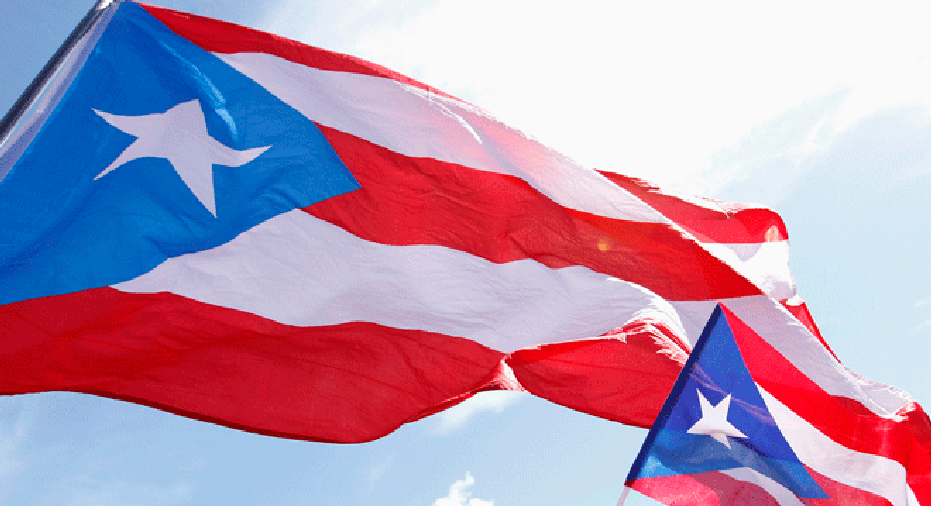Puerto Rico Bonds Falling On Pension-Reform Ruling

Puerto Rican municipal bonds issued last month as a last-ditch effort to stave off default were tanking on Monday following a court ruling last week against government-backed pension reform and reports that the Caribbean island has hired several restructuring experts.
The debt was trading at around 87 cents on the dollar, pushing the yield to 9.425%, according to Municipal Market Data. The bonds were the most actively traded on Monday, according to Thomson Reuters's Municipal Market Monitor.
The Puerto Rico Supreme Court on Friday struck down a pension reform plan enacted by the government posing a major setback to the island commonwealth’s effort to reign in debt and fix its badly broken finances.
A majority of the court’s nine members ruled that the reforms were unconstitutional and violated the rights of pensioners who had been guaranteed certain benefits under the contracts of their retirement plans.
The court ruled, however, that the money-saving reforms could be applied to new members of the pension plan hired after the reforms were signed into law in December.
The bonds had already been drifting lower last week, falling below their 93 cent issue price, after reports that Puerto Rico had hired several consulting firms known for assisting in debt restructurings.
On Thursday Puerto Rico hired FTI Consulting, a Florida-based global advisory firm. The island had already hired Cleary Gottlieb Steen & Hamilton on Monday and Millco Advisors LP last month.
The $3.5 billion in general obligation bonds sold on March 11 were touted as a bridge to help Puerto Rico through a difficult transition as it implements an array of fiscal reforms, many of them targeting the islands bloated pension debts.
The bonds were a bit of an anomaly because they attracted numerous hedge funds seeking greater rewards than are generally derived from municipal bonds, which because of their usual stability tend to attract risk-averse mutual funds managing retirement plans.
An eight-year recession, high unemployment and a dwindling population have sapped the island’s tax revenues, allowing Puerto Rico to ring up an estimated $70 billion in debt.
In February, all three of the major ratings firms slashed the island’s credit to junk status, citing fears that the ongoing recession and rising government expenses – notably soaring pension costs for retired public employees – will make it difficult for Puerto Rico to raise money in the capital markets.
Most of the money raised in the offering is to be earmarked for repaying and refinancing outstanding debt.



















